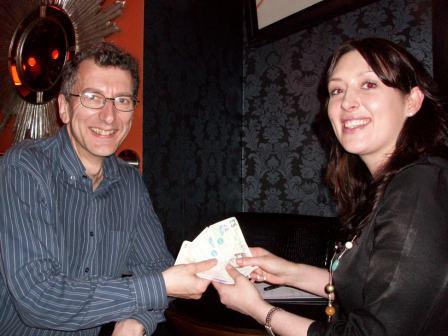Whose money will you give: a poor person around the region or a poor person abroad? According to research by Professor Karen Winterich and colleagues at Texas A&M University, if you are a man, you tend to give money to the people closest to you.
If you are a woman, you will give both groups equal numbers.
Winterich, currently teaching marketing at Texas A&M University's Mays School of Economics, says she can predict charitable behavior for different groups of individuals based on two factors: gender and morality. . (Ethics is here with the meaning of being considerate, kind, fair and awake for a person).
The study is published in Consumer Research. The co-author of the paper is Vikas Mittal of Rice University and William T. Ross of Penn State University.
The results of Winterich's study include those involved in fundraising.
 Men do charity. (Photo: broadstreet.co.uk)
Men do charity. (Photo: broadstreet.co.uk)
The study examined the response to the deprivation of an 'inner group' and an 'outside group'. The inner group has a clear connection with philanthropists, such as distance or ethnicity, while the outside group has nothing to do with philanthropists.
In the study, participants completed a survey to measure their moral identities. After that, they were given 5 $ 1 bills and 3 options: to keep the money, donate to Katrina, or donate to the Indian Ocean tsunami fund.
The results are completely consistent.Women with higher moral identities tend to divide their coins equally for two charity groups. Women with lower moral identities donate more to the inner group (Katrina victims).
Men with higher moral identities donate to the inner group, but very rarely donate to outside groups (tsunami victims). Men with low moral identity pocket money.
Winterich's research reinforces the findings of other studies of moral identity, showing its correlation with an individual's behavior in expanding his own interest to others. The low moral identity shows that a person will focus more on himself, higher moral identity means a person will focus more on others.
For fundraisers, they need to consider placing themselves in position for those who do charity.Charitable funds should focus on the donors' connections and the motivation to make sure that charitable work is viewed as an inner group, especially when men are the main goal. At the same time, women are more generous, so charitable programs should focus on them whenever possible.
In addition, making a philanthropist think about his or her moral identity can make them more generous.
There is another surprise from this study. Winterich said: 'It is amazing to me how much people donate. That is a good signal for society. '
 The most famous scientific failures in history
The most famous scientific failures in history Mysterious genius mechanic and the machine froze time
Mysterious genius mechanic and the machine froze time The son carries the 'bad gene' of genius Albert Einstein
The son carries the 'bad gene' of genius Albert Einstein Isaac Newton
Isaac Newton